Against the backdrop of the U.S. Supreme Court’s historic decision Friday that the Constitution guarantees same-sex couples the right to marry, the 46th Annual Chicago Pride Parade will kick off this weekend in the Lakeview neighborhood and residents can expect an especially raucous and prideful celebration.
Justice Anthony Kennedy, typically the court’s swing vote, broke yet another tie between the conservative and liberal blocs and authored the opinion on behalf of the 5-4 majority.
“They ask for equal dignity in the eyes of the law,” Kennedy wrote of same-sex couples. “The Constitution grants them that right.”
Now the City of Chicago, which this year is implementing new measures to calm the parade’s effect on the Lakeview neighborhood, will see those measures tested by the anticipated celebratory atmosphere.
The parade, which typically draws hundreds of thousands of participants and spectators to the Lakeview neighborhood, has been testing the community’s infrastructure and patience and the City Council has warned this could the parade’s last year in Lakeview.
“As the popularity of the parade continues to grow in size, it has presented additional challenges,” said Erin Duffy, director of community outreach for Ald. Tom Tunney (44th).
The city, along with Tunney and Ald. Cappleman (46th), have been working to make sure the parade, which has been in Lakeview since 1971, stays safe for Lakeview residents and they instituted some changes they hope will cut down on the large crowds that gather after the parade and bring excessive littering and overcrowding to the neighborhood.
Duffy said the changes include adding 90 off-duty Chicago police to patrol the parade and the presence of extra security. Duffy also said to enforce Chicago’s ban on open containers of alcohol, the police will enforce a strict no alcohol policy along the parade route and there will be several checkpoints along the way. Violators will be subject to a $1,000 fine.
“The checkpoints will really deter public drinking, since people will have to throw them out before entering the route,” Duffy said.
In addition to city collaboration, Tunney also organized an advisory group to discuss how the parade impacts the neighborhood and how to improve it.
The group, made up of local residents, the Lakeview Chamber of Commerce and the local police district, concluded that overcrowding, public intoxication and excessive littering were the main issues surrounding the parade. To combat those problems, the community stakeholders agreed on measures to shorten the parade, including limiting business participation in the parade and reducing the number of floats, which Duffy said will shorten the parade to about two hours instead of its usual three-hour time length.
Duffy acknowledged many of the issues are not from the parade itself but the crowds afterward and steps are being taken to disperse people.
 “We’ve increased resources for cleanup after the parade,” she said, adding that many Lakeview bars have volunteered to close early at 2 a.m. instead of 4 a.m. to help thin out crowds quicker and eliminate excessive littering.
“We’ve increased resources for cleanup after the parade,” she said, adding that many Lakeview bars have volunteered to close early at 2 a.m. instead of 4 a.m. to help thin out crowds quicker and eliminate excessive littering.
Christopher Barrett Politan, executive director for North Halsted Business Alliance, was part of the advisory board and said the group needed to create solutions that would keep Lakeview residents happy and keep Pride in the area. Politan hinted the “test trial” changes for this year’s parade might not be the last but can be “built upon for years to come.”
Duffy agreed, saying it’s still a process to see what works best, but the public safety of residents is the main concern. She added the changes will hopefully keep the parade in Lakeview for years to come.
Courtland Hickey, general manager of Chicago Costume, a pop-up costume shop in Lincoln park, who also rents a hangar in Lakeview, said he is happy about the new measures, especially the stronger security.
“The whole pride situation is a little unsafe,” Hickey said.
Hickey said he feels like the additional police presence is needed, although he said he doesn’t know how enforceable the open container laws will be. Either way, he said knows the parade will bring people extra business, and that’s always a good sign, especially at a pop-up store.
“I’m excited for proven business,” he said. “That’s the whole reason I’m here.”
Hickey said he knows the new regulations will have an effect on some people, but said that making changes is the evolution of the parade – or any parade.
“Traditions change and so do the parade,” Hickey said.
First time parade goer Nicole Przybyla, from Lemont, said it is a good idea to add additional police as long as it doesn’t change the atmosphere of the parade.
“It’s one thing to b e safe, and it’s another to be big brother and have a strong-arm, things like that,” she said.
e safe, and it’s another to be big brother and have a strong-arm, things like that,” she said.
Melissa Griffin, from Hammond, Ind., agreed with Pryzbyla, saying the extra police presence is necessary.
“That’s good in any aspect,” she said. “You want people to feel secure.” But Griffin said she does not like that the parade is shorter.
Charlie Weber, 24, a Lakeview resident, said he is in favor of a shorter parade because as he puts it, the parade turns the neighborhood into a “hell-hole Lakeview.”
Weber also predicts a difficult transition to the no alcohol rule and said public intoxication has been a part of the parade atmosphere and foresees many intoxicated people who aren’t aware of the changes and will become upset at additional enforcement.
While the rules will be more strict, Duffy said overall residents are responding favorably.
“People are very pleased with the changes; more security is what everyone has asked for.” Duffy said. “We are really trying to minimize the impact of the surroundings residents’ quality of life this year.”
Politan added that he wants to make sure folks still have a good time.
“It’s a great event for all the folks that attend” Politan said. “[It has] a positive impact and I think people will be pleased.”
Weber said that the parade is exciting for everyone and no one is going to not go because of the changes.
“This brings an entire community together,” he said.







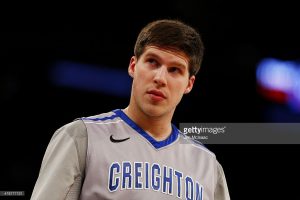
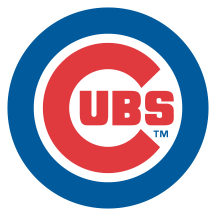
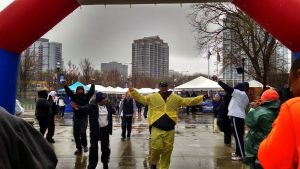
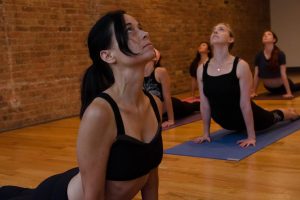
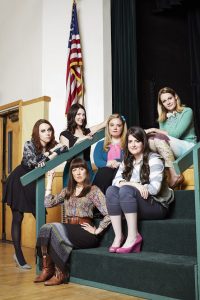
Be First to Comment